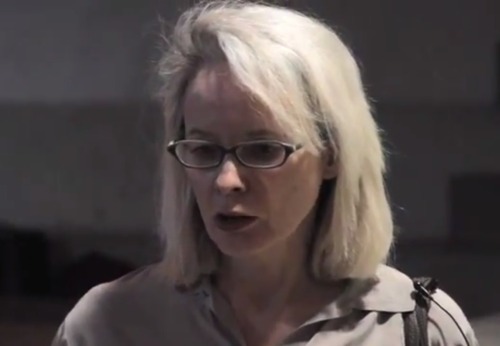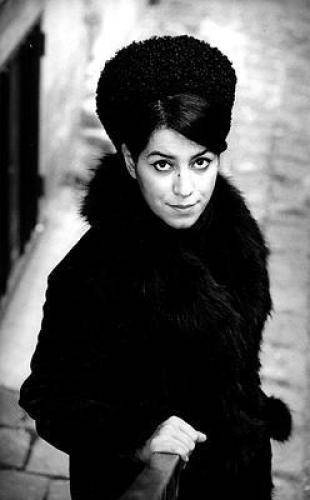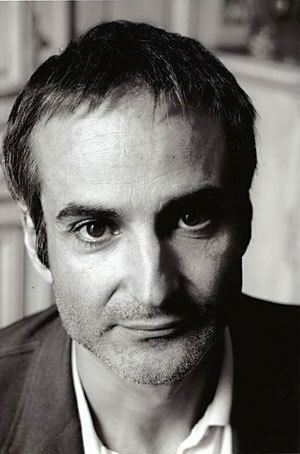
The culture critic (and Bob Dylan expert) Greil Marcus has organized a stunning French-American “intellectual exchange” in the form of the six-day Festival Albertine which will take place from October 14 through October 19, 2014, at the new Albertine bookshop in New York.
All of the panels will be videotaped and made available online via the bookstore’s website, http://www.albertine.com, after the festival so that those who cannot attend can see them.
Marcus has always moved smoothly through highbrow and popular culture, and the festival reflects that. Novelists and graphic novelists, movie directors and TV show auteurs, economics professors and fashion designers, French and American historians and rock, book and film critics will take part in the festival.

The lineup for the six evenings includes: Novelists Mary Gaitskill (“Two Girls, Fat and Thin”) and Percival Everett (“Erasure”), director Olivier Assayas (“Après- Mai”), Joseph Stiglitz (“Freefall: America, Free Markets and the Sinking of the World Economy”), Marjane Satrapi (“Persepolis”), the mathematician John Nash, TV show creators Alexandra Clert (“Engrenages”) and Matthew Weiner (“Mad Men”), historians Françoise Mélonio and Arthur Goldhammer and others.
For info about specific panels and the schedule, head over to the Albertine website.
Although there is no panel devoted directly to rock music, a number of the panelists are or have been immersed in the music. In addition to Marcus, there is former New York Times chief rock critic John Rockwell, former Newsweek pop critic James Miller, “Streets of Fire” screenwriter Larry Gross, and Mary Davis (author of “Classic Chic: Music, Fashion and Modernism”).

Albertine opened its doors yesterday (September 27, 2014). The book store and the festival, named after Proust’s muse, Albertine, are the brainchild of French diplomat Antonin Baudry, cultural counselor of the French Embassy in the United States, and, using the pen name Abel Lanzac, co-author of the graphic novel “Quai d’Orsay.”
In an essay that explains why the need for Albertine, Baudry wrote:
“Her naissance is important because so many books were missing in New York, the very heart of the world, before she arrived. Her presence will matter because there are essential ideas to uncover and crucial debates to be had between the old Continent and the new. In the 21st Century, without considering perspectives from near and far, should we be so confident in our definitions of good, evil, beauty; fairness on the battlefield, justice; a good society, a good life, or even literature?
“One can answer each of these questions on his or her own, but to collectively attack them and examine each of their nuances—and from points of view illuminated by the insight of foreign lights—will lead us further. The world is in rapid flux. As new powers emerge or re-emerge on the political, economic and intellectual realms, their presence inspires us to reinforce deep existing friendships. For friendship is always more valuable, precious and rare in complex and dangerous times than during periods of calm and certainty.”
The book store currently contains 14,000 books including, according to the Albertine website, “contemporary and classic titles from 30 French-speaking countries in genres including novels, non-fiction, art, comic, or children’s books.” Visitors are welcome to find a comfortable chair and read any of them.
To get the French-American debate — what he calls the “French-American intellectual exchange” — underway, Baudry decided to kick things off with a festival and enlisted Marcus to curate the week-long event.
“Antonin read [Marcus’ landmark books] ‘The Shape of Things to Come’– as ‘L’Amerique et ses prophètes,’ the French title — and ‘Lipstick Traces,'” Marcus said when asked how he came to curate the festival. “I’d never been asked to do something like it, unless you count co-editing ‘A New Literary History of America.'”

In his essay explaining the need for the bookstore and festival, Baudry detailed why he chose Greil Marcus to curate it:
Our first question was, Who should curate and shape this debate? We made two decisions concerning this choice—decisions that mirror the entire vision of the Albertine experience. Firstly, the curator must be an American, and secondly, it must be Greil Marcus. Why an American—and not a French person—to curate a French festival at the French Embassy? Because that is the essence of a true dialogue. For Festival Albertine’s to be fruitful in America, speakers must be selected by American ears, eyes and intelligence. And these ears, eyes and this intelligence had to be Greil’s.
Greil Marcus’ masterful work defines him as one of the most relevant and stimulating living thinkers of America. Greil touches the foundational issues of society. Along with many of his books, The Shape of Things to Come: Prophecy and the American Voice addresses questions and issues so fundamental
to America that it perfectly sets the stage for deep analysis of our cultures in comparison. Greil’s texts deliver the intellectual keys to unlock channels of transatlantic dialogue, discussion, and compelling debate.Moreover, Greil is the founder of a true analytic method. He offers both a broader and more precise conception of history in Lipstick Traces when he writes, “and what is history, anyway? Is history simply a matter of events that leave behind those things that can be weighed and measured – new institutions, new maps, new rulers, new winners and losers–or is it also the result of moments that seem to leave nothing behind, nothing but the mystery of spectral connections between people long separated by place and time, but somehow speaking the same language?”
The bookstore is located in the French embassy. At http://www.albertine.com is this history of the historic building:
Albertine is housed in the official landmark Payne Whitney mansion in Manhattan. In 1902, former Standard Oil Company treasurer Oliver Hazard Payne commissioned the Italian Renaissance mansion as a wedding gift to his nephew Payne Whitney. Between 1902 and 1906, Stanford White, the famed architect of the Washington Square Arch, designed and oversaw construction of the mansion. Since 1952, the mansion has housed the Cultural Services of the French Embassy. The bookshop within the mansion was born in 2014, and its interiors were created by celebrated French designer Jacques Garcia (Chateau du Champ de Bataille in Normandy, France and The NoMad Hotel in New York City)… in the model of a grand private French library. The two-floor space includes a reading room and inviting nooks furnished with lush sofas and armchairs.
I asked Marcus what ten books he would suggest someone planning to attend the festival or watch the videos should read.
The list:
Olivier Assayas, “A Post-May Adolescence”
Joseph Stiglitz, “Freefall: America, Free Markets and the Sinking of the World Economy”
James Miller, “The Passion of Michel Foucault”
May Davis, “Classic Chic: Music, Fashion and Modernism”
Marjane Satrapi, “Persepolis”
Antonin Baudry aka Abel Lanzac, “Weapons of Mass Diplomacy”
Emmanuel Carrère, “The Moustache” and “Limonov”
Mary Gaitskill, “Two Girls, Fat and Thin”
Percival Everett, “Erasure”
—
[Note: I just published my rock ‘n’ roll novel, True Love Scars.” Rolling Stone has a great review of my book in the new issue. Read it here. There’s info about True Love Scars here.]
— A Days Of The Crazy-Wild blog post —
